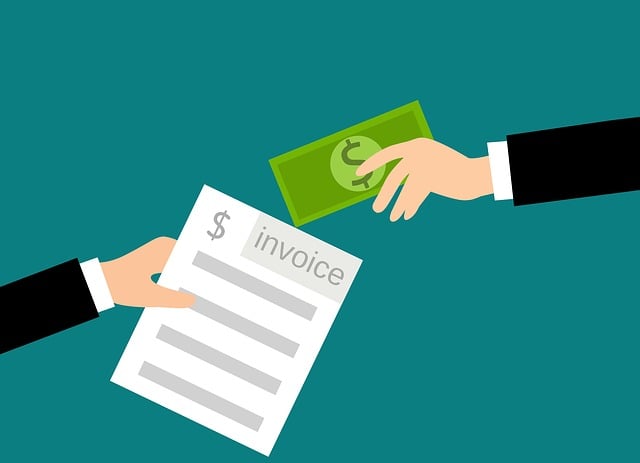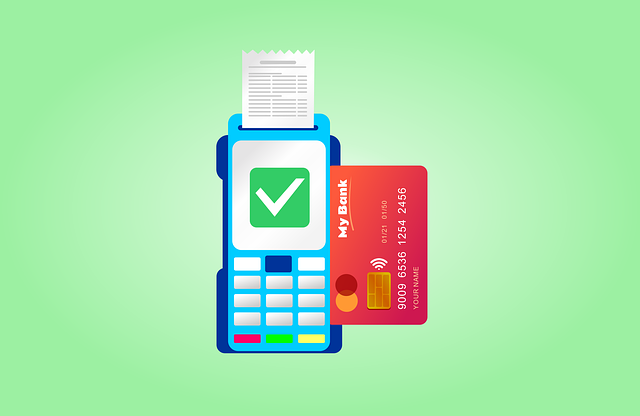Invoice financing offers businesses a quick cash flow solution by converting invoices into immediate funds. Unlike traditional loans, it focuses on the value of outstanding invoices rather than creditworthiness or collateral. Benefits include flexible terms, access to working capital within 24-72 hours for strategic investments, and streamlined processes based on sales data. However, there are considerations like fees, customer relationship implications, and meticulous record-keeping. To maximize benefits, businesses should explore reputable invoice financing providers with transparent terms and tailored solutions.
“Invoice financing is a powerful tool for businesses seeking cash flow solutions, yet it’s shrouded in misconceptions. This article aims to demystify this process by offering an all-encompassing guide. From understanding the core concept to weighing its benefits and drawbacks, we’ll explore why invoice financing can be a game-changer for businesses. We’ll also delve into the comparison with traditional loans, the mechanics behind it, and provide insights on choosing reliable providers, empowering you to make informed decisions.”
- Understanding Invoice Financing: Unraveling the Concept
- Invoice Financing Benefits: A Cash Flow Lifeline for Businesses
- Invoice Financing vs Loans: Debunking the Comparison
- The Mechanics of Invoice Financing: How Does it Work?
- Weighing the Pros and Cons: Evaluating Invoice Financing's Impact
- Navigating the Application Process: Finding Reliable Invoice Financing Providers
Understanding Invoice Financing: Unraveling the Concept

Invoice financing is a powerful tool that enables businesses to transform their invoices into immediate cash flow. It’s not just about borrowing money; it’s a sophisticated process designed to optimize cash management and support business growth. By selling invoices to specialized providers, businesses can access funds quickly, typically within 24-72 hours, without tying up their capital in receivables. This streamlines operations and provides working capital for investment, expansion, or other strategic initiatives.
Understanding the concept of invoice financing involves recognizing its distinct advantages over traditional loans. Unlike loans that rely on creditworthiness and collateral, invoice financing is based primarily on the quality and value of outstanding invoices. This makes it accessible to businesses of all sizes, including those without a strong credit history. However, like any financial decision, it comes with considerations—such as fees, potential impact on customer relationships, and the need for accurate record-keeping. Exploring reputable invoice financing providers who offer transparent terms and tailored solutions is crucial for businesses seeking to leverage this alternative funding method effectively.
Invoice Financing Benefits: A Cash Flow Lifeline for Businesses

Invoice financing offers a powerful solution for businesses seeking to optimize their cash flow management. One of its key benefits is providing a reliable source of immediate funding, enabling companies to access working capital quickly. This is particularly advantageous for small and medium-sized enterprises (SMEs) that may have limited access to traditional bank loans due to stringent lending criteria or less established credit history. By leveraging the value of outstanding invoices, businesses can obtain much-needed capital to cover operational expenses, fund growth initiatives, or navigate through periods of economic uncertainty.
Compared to conventional loans, invoice financing presents several advantages. It provides a more flexible funding structure as payment terms are extended to customers, effectively shifting cash flow challenges onto them. This method also streamlines the financing process as it relies on existing sales data and customer creditworthiness rather than complex asset valuations or personal guarantees. Applying for invoice financing is typically straightforward, with many providers offering digital platforms that simplify document submission and assessment. Moreover, businesses retain control over their invoices and customer relationships throughout the financing process, ensuring ongoing operations remain undisturbed. However, like any financial decision, there are considerations; potential drawbacks include variable interest rates and fees, as well as the need for accurate financial records to ensure a smooth transaction. Trusted invoice financing providers play a pivotal role in facilitating this alternative funding option, helping businesses thrive through improved cash flow management.
Invoice Financing vs Loans: Debunking the Comparison

Many businesses confuse invoice financing with traditional loans, but there are significant differences that set these two apart. Invoice financing is a unique funding solution tailored to support companies in their cash flow management by using outstanding invoices as collateral. Instead of borrowing money based on a credit score or personal guarantees, this alternative provides working capital by advancing a percentage of the value of those invoices.
Understanding how invoice financing works is crucial when considering its benefits and potential drawbacks. Unlike loans that often come with strict repayment schedules and fixed interest rates, invoice financing offers flexibility in terms of repayment timing, aligning with the natural cash flow cycle of a business. Pros include access to immediate working capital, no personal guarantees required, and potentially lower borrowing costs. However, cons may include higher fees, variable interest rates, and reliance on consistent customer payment behavior, making it less suitable for businesses with irregular invoice collection cycles or an uncertain client base. When exploring this option, businesses should research various invoice financing providers to find the best fit based on their specific needs and financial situations.
The Mechanics of Invoice Financing: How Does it Work?

Invoice financing is often misunderstood as a complex process reserved only for large enterprises. However, it’s a flexible funding solution accessible to businesses of all sizes, offering unique benefits compared to traditional loans. The mechanics behind invoice financing are straightforward. Businesses sell their invoices (unpaid customer accounts) to an invoice financing provider at a discount, immediately receiving a cash injection to cover immediate expenses or grow operations. This process is effectively a form of asset-based lending, where the invoices serve as collateral.
Unlike loans that require strict borrowing limits and stringent credit checks, invoice financing focuses on the quality and volume of outstanding invoices. Pros include faster access to capital, improved cash flow management, and reduced financial strain on businesses, making it an attractive option for those seeking short-term funding. However, cons include potential fees and charges associated with discounting invoices, plus the risk that customers may dispute or fail to pay invoices, impacting cash flow negatively. Applying for invoice financing involves submitting business details, invoice copies, and financial statements, with providers typically approving or rejecting applications within days. A wide range of invoice financing providers exists, from banks to specialized fintech companies, each offering tailored solutions to meet diverse business needs.
Weighing the Pros and Cons: Evaluating Invoice Financing's Impact

Invoice financing is often considered a game-changer for businesses seeking cash flow solutions, but it’s crucial to weigh its benefits against potential drawbacks before applying. Unlike traditional loans, invoice financing allows businesses to access funds using their outstanding invoices as collateral. This innovative approach provides several advantages, including faster funding, no personal guarantees required, and the ability to maintain control over accounts receivable. Businesses can also choose from various providers, each offering tailored solutions, competitive rates, and flexible terms.
However, invoice financing may not be suitable for everyone. One significant drawback is that it typically involves higher interest rates and fees compared to conventional loans. Additionally, the process can be complex, with detailed documentation and strict eligibility criteria. Businesses must ensure they have a steady stream of invoices and a strong customer base to maintain their creditworthiness. Understanding how invoice financing works and exploring different providers will help entrepreneurs make informed decisions, ensuring this alternative funding method aligns with their specific financial needs and goals.
Navigating the Application Process: Finding Reliable Invoice Financing Providers

Navigating the application process is a crucial step in understanding the benefits of invoice financing compared to traditional loans. Many businesses overlook this aspect, assuming it’s a straightforward and quick fix for cash flow issues. However, finding reliable invoice financing providers requires diligence. It’s essential to differentiate between various options available in the market. Invoice financing offers unique advantages like access to immediate funds against future invoices, with no need for collateral. This alternative funding method is particularly useful for small businesses dealing with lengthy payment terms from clients.
When applying for invoice financing, businesses should expect a process that involves submitting detailed financial records and invoice data. Prospective providers will assess the quality of these documents to determine the value of the invoices and subsequently offer financing based on their assessment. This method provides a more flexible funding option than traditional loans, as it doesn’t require strict personal guarantees or assets as collateral. However, understanding the potential drawbacks is essential; fees and interest rates can vary widely among providers, and businesses must carefully consider the terms to avoid unfavorable conditions.






